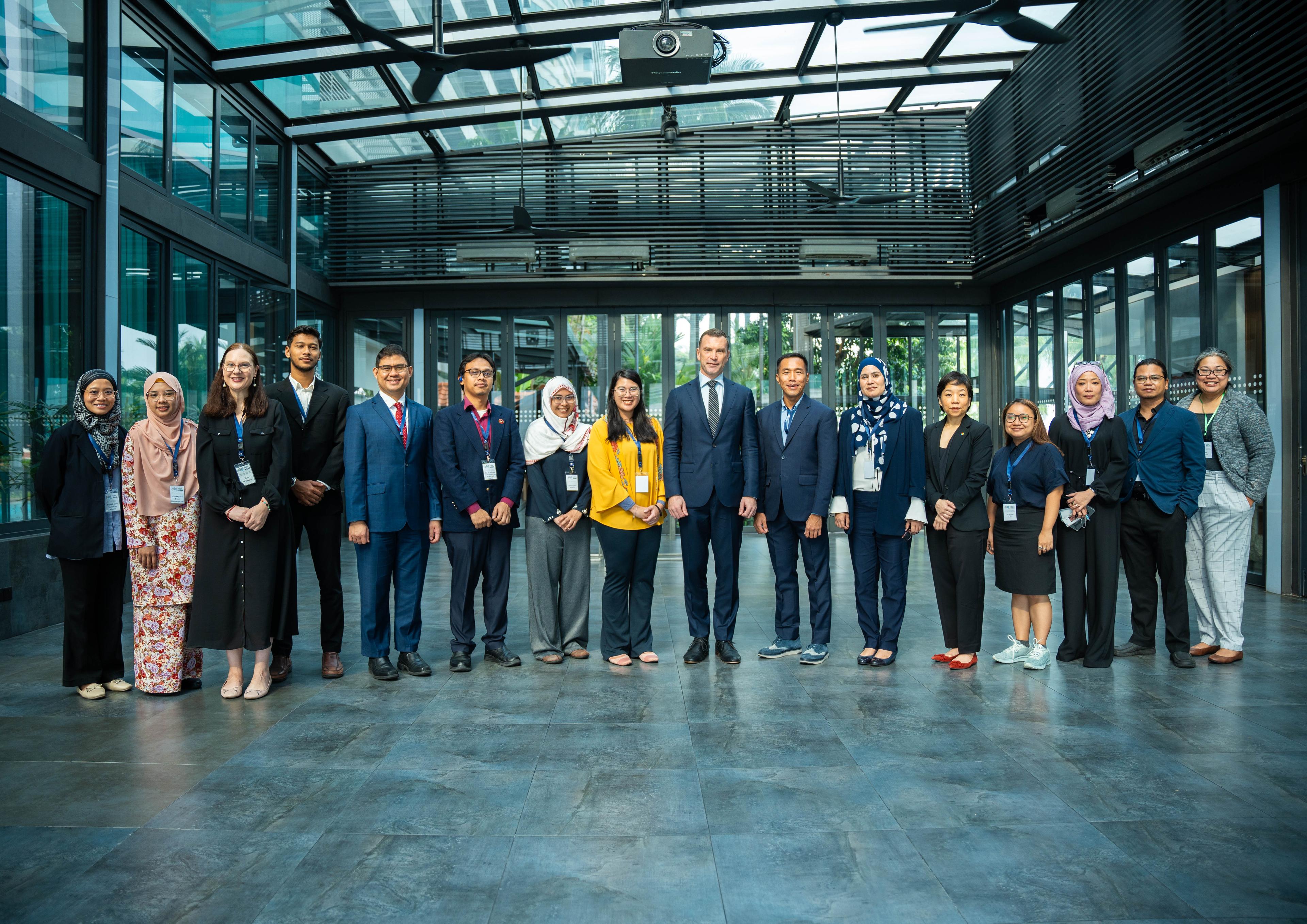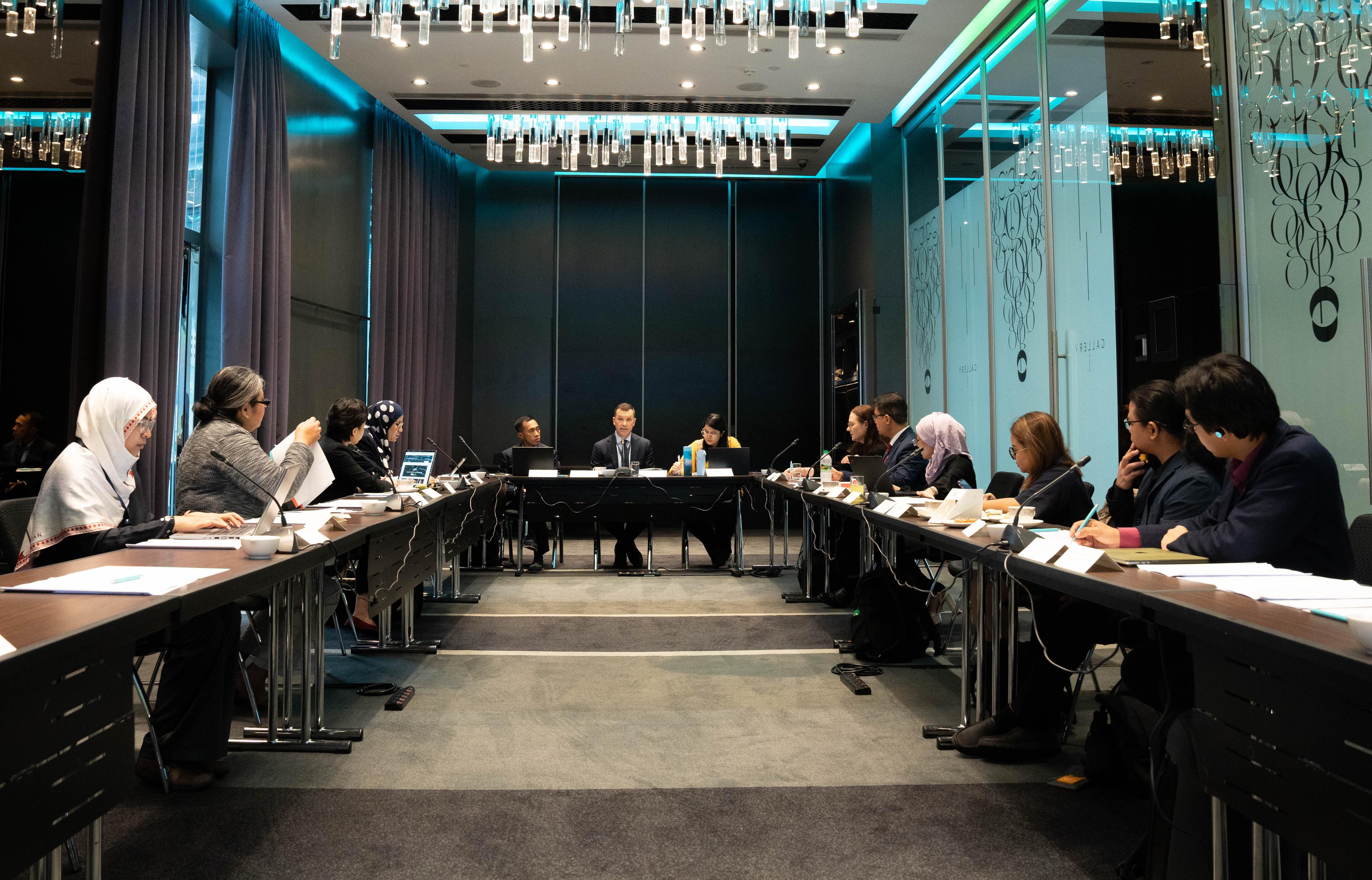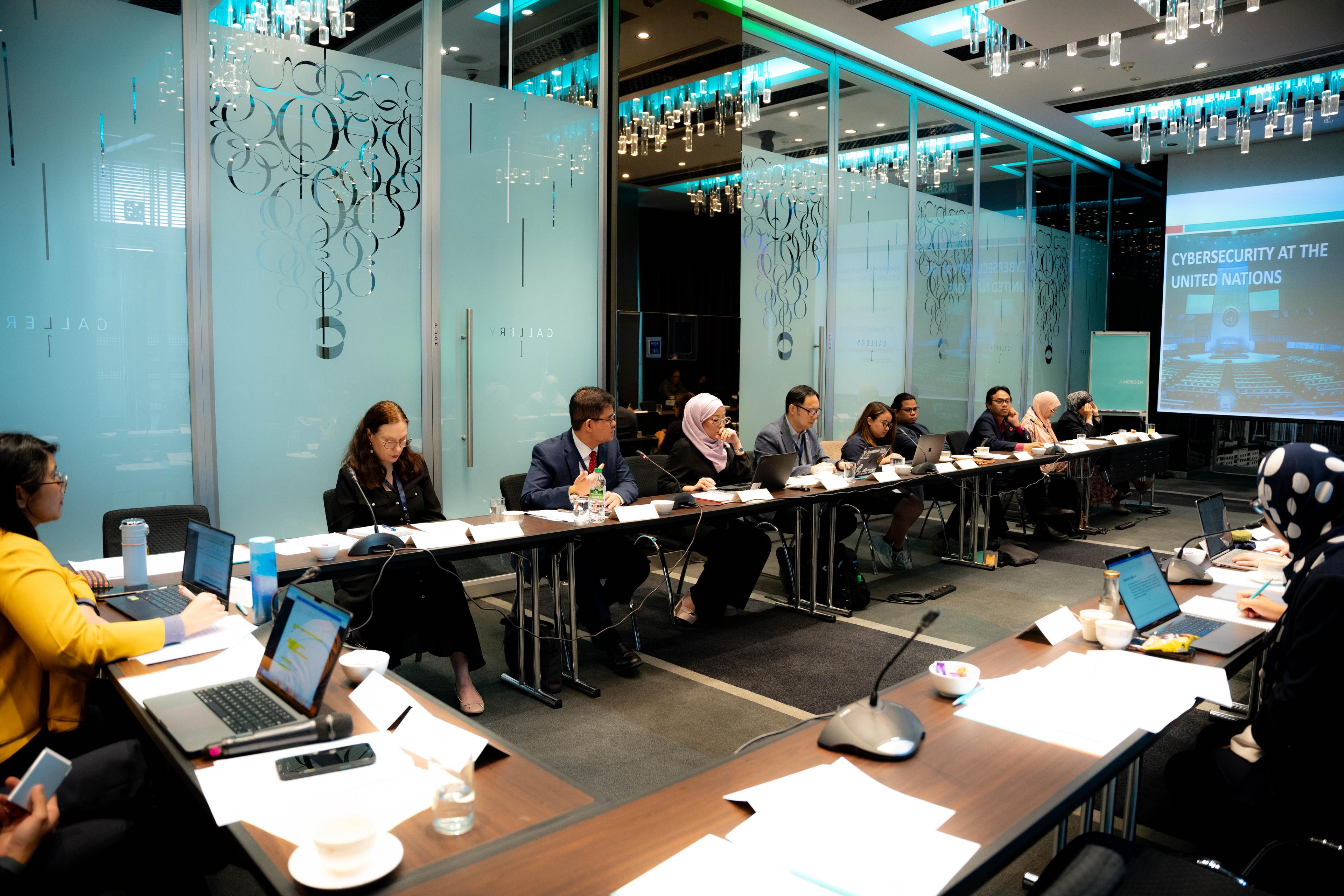After implementing multistakeholder consultations in the Philippines, Viet Nam, and Indonesia, Cyber ASEAN held its final closed-door in-person event in Kuala Lumpur, Malaysia last September 5, 2023. Esteemed participants in the high-level workshop included representatives from Malaysia’s National Cyber Security Agency, Ministry of Foreign Affairs, Malaysia’s Armed Forces, Axiata Group Berhad, Microsoft Malaysia, CyberSecurity Malaysia, Sunway University, and IO Foundation.
His Excellency, Simon Fellows, Acting Australian High Commissioner to Malaysia, welcomed speakers and participants, noting Malaysia and Australia’s successful collaboration in cybersecurity, particularly in ASEAN. Mr. Fellows emphasized that the Cyber ASEAN project is a testament to Australia’s commitment to enhancing cybersecurity in Malaysia, and Southeast Asia.


